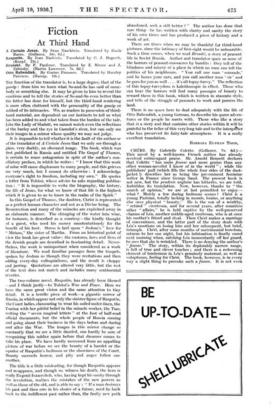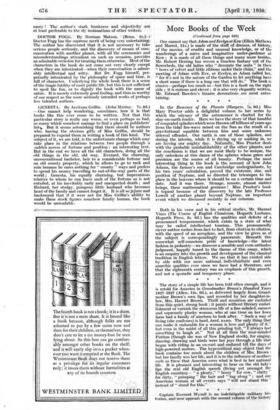CHPRI. By Gabrielle Colette. (Gollancz. 7s. 6d.)— This novel by
a well-known French author has already received extravagant praise. Mr. Arnold Bennett declares that Colette "has more finesse and more genius than any other woman-novelist I know of in the world " ; while the publishers' puff (which fills the whole four sides of the dust- jacket !) describes her as being the pre-eminent feminine writer in France since George Sand. The present book is not new, but the pruderie anglaise has hitherto, we are told, forbidden its translation. Now, however, thanks to "the march of opinion," we are at last permitted to enjoy— what ? Merely a few daring bedroom scenes Cheri is a young Parisian, totally lacking in morals, brains, or anything else save physical "beauty." He is the son of a wealthy, " retired " courtesan, and for several years, after countless other "affairs," he is held captive by the well-preserved charms of Lea, another middle-aged courtesan, who is at once his mother's friend and rival. Then Cheri makes a marriage of convenience, and the latter part of the story deals with Lea's emotions on losing him and her subsequent, but brief, triumph. Cheri, after some months of matrimonial boredom, returns to her one night, but his infatuation is finally cured next morning when, catching Lea momentarily off her guard, he sees that she is wrinkled. There is no denying the author's "finesse." The story, within its deplorably narrow range, is full of true and clever touches ; and there is a redeeming element of tenderness in Lea's genuinely maternal, as well as voluptuous, feeling for Cheri. The book, however, is in every way a slight thing to provoke such a furore. It is not even nasty ! The author's stark frankness and objectivity- are at least preferable to the sly insinuations of other writers.











































 Previous page
Previous page